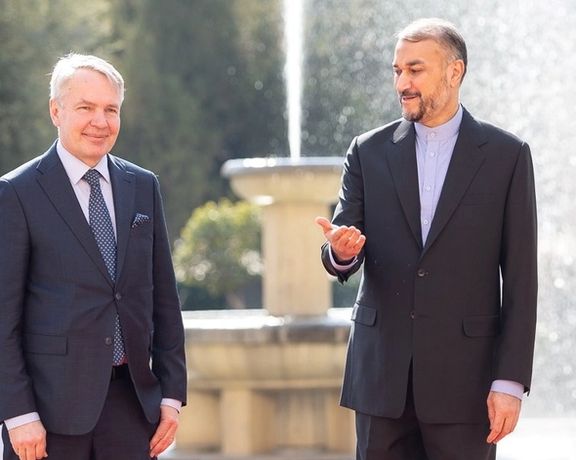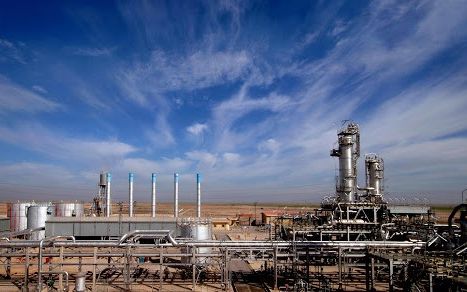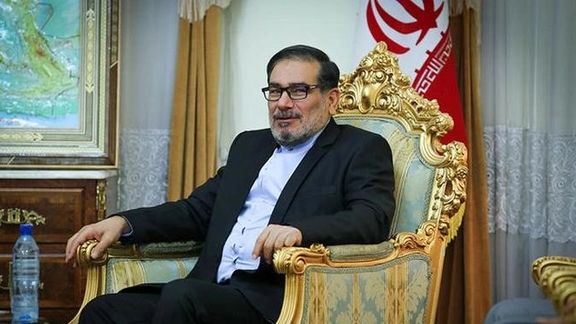US Officials Say They Have Three Weeks To Reach A Deal With Iran

Biden Administration officials have told CNN they have until the end of February to reach an agreement with Iran on restoring the the 2015 nuclear deal, JCPOA.

Biden Administration officials have told CNN they have until the end of February to reach an agreement with Iran on restoring the the 2015 nuclear deal, JCPOA.
Negotiations that started ten months ago in Vienna have made little progress and US official say the current round of talks that started on Tuesday are crucial to see if an agreement is possible.
Iran left the negotiations in June for five months, saying its new president needed time to organize his government, as it continued to enrich uranium and increase leverage. US and Western diplomat began issuing warnings about time running out six months ago, but they did not set a deadline on the negotiating process.
One official speaking to CNN said, "We made progress narrowing down the list of differences to just the key priorities on all sides. And that's why now is the time for political decisions.”
They were hints that end of January would be the deadline to make a breakthrough, then mid-February was mentioned and now officials are setting end of this month as a possible cutoff date when Washington has to make a decision about continuing the talks.
US lawmakers are increasingly questioning the administration's strategy in holding talks with Iran.
CNN said that a failure to salvage JCPOA would be considered “a major blow” to President Joe Biden’s foreign policy, after the chaotic withdrawal from Afghanistan.

As Iran’s negotiating team returned to Vienna on Tuesday for further talks, Russia said an agreement was within reach. Washington has remained more cautious.
With talks paused January 28 for “political consultations,” Tasnim news agency, which is affiliated to the Iranian (IRGC) Revolutionary Guards cited a source “close to the Iranian delegation” that Tehran had taken the necessary political decision and that the US needed to do the same.
Reiterating Iran’s demand that the US remove all sanctions imposed under ‘maximum pressure’ since 2018, when the US left the 2015 deal (the JCPOA, Joint Comprehensive Plan of Action), Foreign Minister Hossein Amir-Abdollahian said Monday that “the latest texts obtained from the Vienna talks” failed to address “parts of our demands for the lifting of sanctions.”
Mikhail Ulyanov, Russia’s lead negotiator and its ambassador to the International Atomic Energy Agency, said the talks were “five minutes” from a finishing line. “A draft of the final document has been crafted,” he said. “There are several points there that need more work, but that document is already on the table.”
Rob Malley, the White House Iran envoy leading the American team taking part indirectly in Vienna, told the US station MSNBC Friday that negotiators had not reached agreement on central issues, such as exactly which US sanctions should be lifted and how Iran would again bring its nuclear program within JCPOA limits.

Republican senators warned President Joe Biden Monday that they would work to thwart any new Iran deal if he did not allow Congress to review and vote on it.
Led by Senator Ted Cruz, a long-time opponent of the 2015 nuclear deal, the senators told Biden in a letter dated Monday that they would use "the full range of options and leverage available" to ensure that his government adhered to US laws governing any new accord with Iran.
Republican lawmakers have been warning Biden from the early days of his administration when he criticized his predecessor’s decision to pull out of the Joint Comprehensive plan of Action (JCPOA) and begin talks with Iran to restore the agreement.
Republicans have argued that the JCPOA was a weak arrangement that did not prevent Iran from ultimately acquiring nuclear weapons and did not cover other issues, such as Tehran’s ballistic missiles and its aggressive regional policies. They have also argued that restoring the JCPOA would mean lifting tough economic sanctions and providing a lifeline to the Islamic Republic, which is in an economic crisis since Trump imposed sanctions.
Last week, the chairman of the Senate Foreign Relations Committee, Bob Menendez (D-NJ) was the first senior Democrat to express his opposition to Biden’s Iran policy in a long speech on the Senate floor.
Menendez and republicans asked the administration to inform Congress about the talks with Iran. US Special Envoy for Iran and chief negotiator Rob Malley will reportedly brief the House of Representatives on Tuesday and the Senate on Wednesday via video link.
Indirect talks in Vienna between Iran and the United States on reviving the 2015 agreement are due to resume on Tuesday. Talk of a possible agreement has driven oil prices lower, with markets anticipating that the possible removal of sanctions on Iranian oil sales could boost global supplies.
Iran later breached many of the deal's nuclear restrictions and kept pushing well beyond them.
Cruz and other senior Republican senators told Biden that implementation of any new deal would be "severely, if not terminally hampered" if he did not meet statutory obligations aimed at ensuring congressional oversight over revisions or changes to the 2015 Iran nuclear accord.
They provided no details about their plans, but Republicans have used various tactics to slow down other legislation or put holds on Biden's nominees, including many for ambassador posts.
Democrats control the 50-50 Senate only by virtue of a tie-breaking vote that can be cast by Vice President Kamala Harris, but they could lose control of the Senate and the House of Representatives in mid-term elections later this year.
The senators said any nuclear agreement with Iran was of "such gravity for U.S. national security" that it would by definition be a treaty requiring the advice and consent of two-thirds of the Senate, they argued.
Any deal that fell short of Senate-ratified treaty would "likely be torn up in the early days of the next presidential administration," they added, anticipating a Republican victory in the 2024 presidential race.
In addition, they noted that a 2015 law passed before completion of the initial nuclear deal requires that any new “agreement” related to Iran’s nuclear program to be transmitted to Congress for a 60-day review period during which Congress could pass a joint resolution of disapproval that would essentially prevent the deal from going into effect.
It said those mandates would be triggered by Iran's progress toward developing a nuclear weapon over the past year, which would require new oversight measures.
With reporting by Reuters

Iran says some of its demands for removal of sanctions have not been considered yet in the Vienna talks to revive the 2015 nuclear deal.
During a joint press conference with his Finnish counterpart Pekka Haavisto in Tehran on Monday, Foreign Minister Hossein Amir-Abdollahian said, “In the latest texts obtained from the Vienna talks, parts of our demands for the lifting of sanctions have not yet been addressed.”
He said the Iranian negotiating team will focus on a document agreeable by all parties in the upcoming sessions of the Vienna talks, scheduled to restart on Tuesday, calling on all the parties to show determination about reaching an agreement.
Earlier in the day, other officials reiterated demands for removal of all ‘maximum pressure’ sanctions imposed since 2018.
The head of Iran’s national security council, Ali Shamkhani, said an agreement that won’t lift all sanctions cannot be the basis of “a good deal”, while foreign ministry spokesman Saeed Khatbzadeh reiterated that lifting of sanctions is Iran’s "red line".
‘Maximum pressure’ refers to around 1,500 sanctions imposed by former president Donald Trump, who withdrew from the 2015 Iran nuclear agreement (JCPOA), but a majority are sanctions on Iranian officials, individuals and companies for reasons other than the nuclear program. Sanctions were imposed for human rights violations, support for terror groups, violation of banking and export laws, money laundering and similar offences.

Signs that talks between US and Iranian officials may succeed could lower oil prices, traders said, after US and Brent crude reached multi-year highs on Friday.
If agreement is reached in Vienna to revive the 2015 nuclear agreement (JCPOA) with Iran and the United States lifts sanctions, it could boost oil shipments, adding about one million barrels a day to global supply.
Oil prices have risen sharply in past few months, nearing the important $100 pb threshold not seen since November 2014.
"There has been speculation that this rally was going to encourage some sanctions relief and get more Iranian oil on the market," John Kilduff, partner at Again Capital LLC in New York told Reuters.
On Friday, the United States restored sanctions waivers allowing international nuclear cooperation with Iran on projects designed to make it harder for Iran's nuclear sites to be used to develop weapons.
"President (Joe) Biden still wants us to negotiate in Vienna ... That's a symbol or a sign of our continued belief that it is not a dead corpse, that we need to revive it because it is in our interest," Rob Malley, U.S. envoy for Iran, told MSNBC Sunday night.
Iran on Monday demanded full removal of all sanctions imposed since 2018 when for US president Donald Trump withdrew from JCPOA.

Iran nuclear talks are set to resume this week as Tehran on Monday reiterated its demands for removal of all ‘maximum pressure’ sanctions imposed since 2018.
"An agreement in which the sanctions that form the maximum pressure are not lifted will condition the country's economy and cannot be the basis of a #GoodDeal," Ali Shamkhani the head of Iran’s national security council tweeted on Monday.
Iran's foreign minister Hossein Amir-Abdollahian also said on Monday, "In the latest texts obtained from the Vienna talks, part of our demands for the lifting of sanctions have not yet been addressed."
‘Maximum pressure’ refers to all sanctions imposed by former president Donald Trump, who withdrew from the 2015 Iran nuclear agreement (JCPOA). While Iran has been demanding their removal as a strict condition to restore the deal, the US expressed willingness to lift only nuclear sanctions.
Trump imposed around 1,500 sanctions on Iran since May 2018, but a majority are sanctions on Iranian officials, individuals and companies for reasons other than the nuclear program. Sanctions were imposed for human rights violations, support for terror groups, violation of banking and export laws, money laundering and similar offences.
The Biden Administration has signaled its readiness to lift oil export sanctions and possibly banking restrictions that have crippled Iran’s economy, in exchange for Iran ending steps it has taken in the past two years to expand its nuclear program.
Iran’s foreign ministry spokesman Saeed Khatbzadeh in his Monday morning weekly briefing told reporters that Tehran expects the US to return to the Vienna talks “having made the necessary decisions in regards with sanctions and the economic dimensions of the JCPOA.” He reiterated that lifting of sanctions is Iran’s "red line".
However, US chief negotiator Robert Malley told MSNBC on Friday that the two sides have not agreed on key issues, such as which US sanctions should be lifted and what it means for Iran to return to JCPOA.
Malley said that US is willing to lift “most sanctions” imposed since 2018, but some were imposed for “Iran’s behavior” and are not related to the nuclear issue.
This statement shows that the most critical questions remain unresolved. Iran has ramped up its uranium enrichment and has amassed a considerable amount of fissile material, cutting its breakout time to build a bomb to a few weeks. It has also deployed thousands of advanced enrichment machines banned by the JCPOA. The question whether Tehran is willing to give up all its advances remains unclear and the issue of which US sanctions to lift is also undecided.
Ten months of diplomacy without a tangible result has raised criticism of how far the Biden Administration is willing to wait. Robert Malley, the US chief negotiator said Sunday that he is heading back to Vienna to resume indirect talks with Iran, insisting that there is still hope to revive the JCPOA. "We'll come back next week. That's a symbol or a sign of our continued belief that it is not a dead corpse - that we need to revive it because it is in our interest."
Khatibzadeh sounded defiant in his briefing when he said, “Iran pursues a good and reliable agreement, and the American government should pay for [leaving] JCPOA and violating the United Nations resolution 2231.”
The spokesman was referring to the UN Security Council Resolution that put a seal of approval on the 2015 nuclear agreement and removed international sanctions in 2015 after Tehran agreed to curb its nuclear program.
US President Joe Biden on Sunday spoke with Israel's Prime Minister Naftali Bennet and discussed the Iran nuclear deal. Israel opposes any agreement that would not permanently bar Iran from obtaining nuclear weapons. Bennet said he and Biden discussed ways to halt Iran's nuclear program.